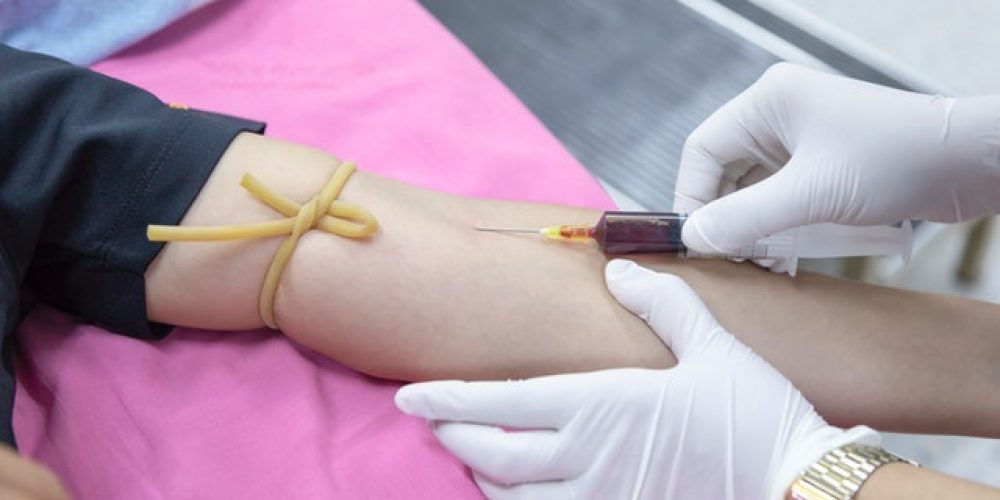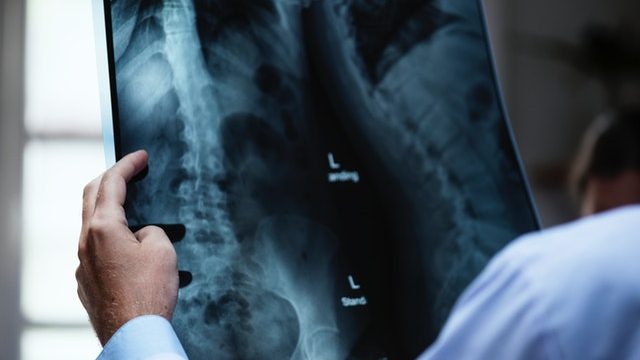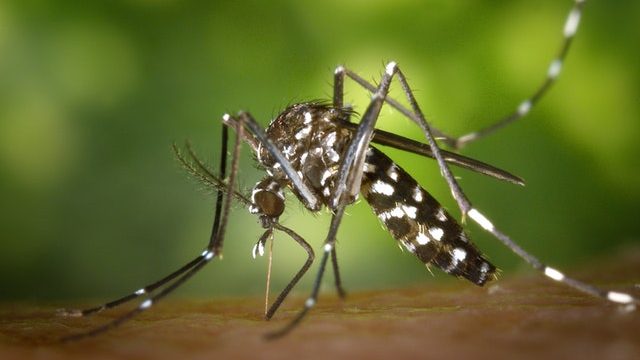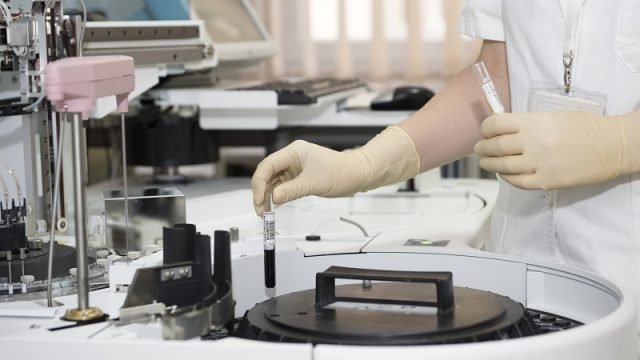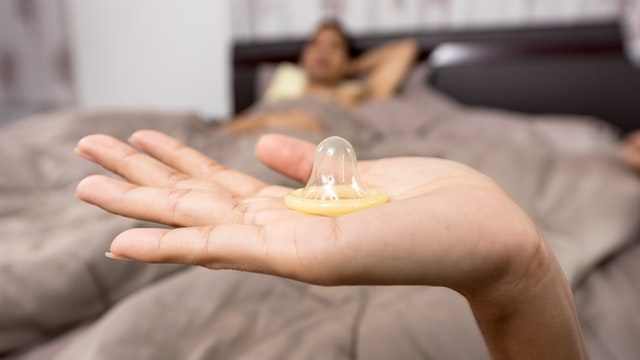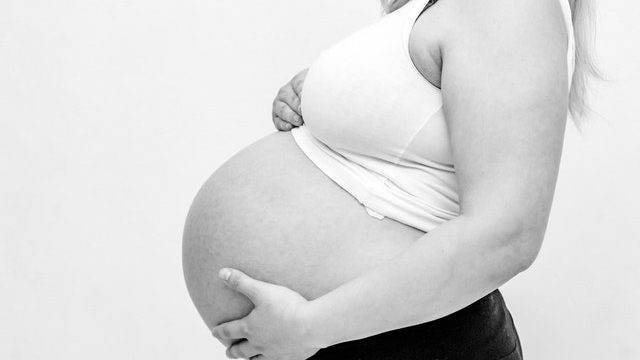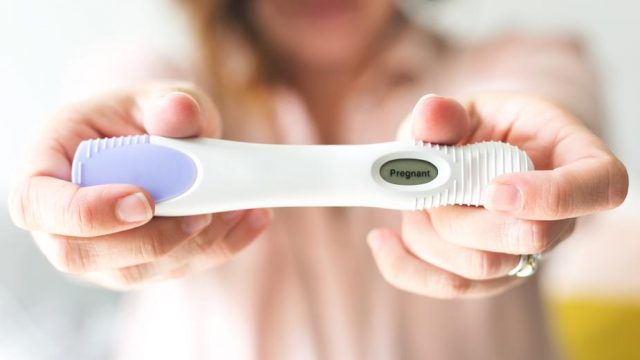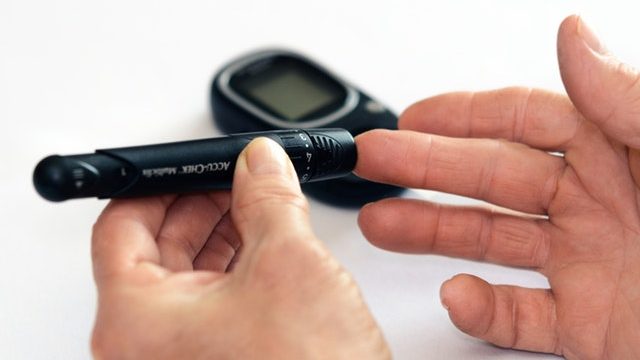archive-title
Daily Archives: June 18, 2019
Every parent would like to have a healthy baby. In fact, if one could design one’s baby, I am sure there would be many takers for the idea. A healthy baby requires a healthy mother. Good nutrition is the foundation of good health. In special situations such as pregnancy, there is a need for special […]
Labor is the process by which delivery happens. Induction of labor (Induce Labor) is a process where labor has not started on its own and certain procedures and medicines are used to start the labor process to bring about vaginal delivery. Common Reasons Why Gynecologist Will Induce Labor When the pregnancy goes beyond 40 weeks. […]
Genetic disorders are caused by changes in a person’s genes or chromosomes. Human beings have 46 chromosomes of which two are the sex chromosomes and 44 are the autosomes. Genetic Disorders happen when there are missing or extra chromosomes. Disorders can happen when there are changes in the genes. They can be categorized depending on […]
The thyroid function plays an important role in the reproductive health of women. Thyroid disorders are an important cause of infertility, and miscarriage, and bad obstetric outcomes. Thyroid hormone plays an important role during pregnancy as it helps in the development of the foetal brain. An adequate amount of Iodine is required to make thyroid […]
Latest News on Your Doctor's Blog
Loading…
Exercise should form an important part of our daily lives. Exercise promotes a sense of well-being. Daily routine activities such as climbing stairs, walking to the train or bus stop, shopping for groceries, all involve some form of exercise. But yet it is important to do exercise in an organized manner for a fixed period of time. Further, it is important to do exercise in pregnancy. How does exercise help during pregnancy? The aim of exercise during pregnancy is to stay fit. Exercise improves muscle tone and strength. It makes it easier to carry the weight one gains during pregnancy. It helps relieve generalized aches and pains, lower back pain and reduce varicose veins and swelling of the feet and ankles. Exercise during pregnancy may help to prevent the development or worsening of medical problems such as diabetes and blood pressure in pregnancy. Exercise during pregnancy helps to prepare for the physical challenge of labor. Appropriate exercise can help women to breathe well during contractions, stretch the perineum muscles and have toned abdominal muscles. This may help reduce the duration of labor. What kinds of exercises are safe during pregnancy? Aerobic Exercise: Such as swimming, running, fast walking, aqua aerobics, […]
In India, cervical cancer is the commonest cancer to affect women. What are the common causes of Cervical Cancer? There are various factors that increase the risk of cervical cancer; such as malnutrition, low socio-economic status, multiple sexual partners, smoking, etc. Human papilloma virus infection is also an important cause of cervical cancer there are many types of HPV. They are classified as High risk and low risk. High-risk types cause genital cancer and the low-risk types cause genital warts. HPV can spread due to skin-to-skin contact. It does not require penetrative intercourse. One can acquire the virus at any time and then it may persist in the cells for a long time. It will then induce changes in the cells that over a long period of time lead to precancerous and then cancerous changes. What is the available vaccine to prevent cervical cancer? HPV infection may not produce any symptoms. Taking vaccination against HPV can prevent cervical cancer. The vaccines contain some strains of the virus in the antigen form. These then help one to develop antibodies to the viral antigen. All women can take the vaccine. It is particularly meant for young girls who have started sexual activity. […]
It is with great pleasure that I inform all my followers that I have now attained the title of The ‘FRCOG’ After 12 years of MRCOG, the Royal College of Obstetricians and Gynaecologists in the UK does an assessment of your performance and then confers on you the title of FRCOG. i.e. fellow of the royal college. The convocation was held at Royal College in London on the 23rd of September 2011. Here I want to thank my parents for always being there for me, encouraging me and supporting me all the way through. None of this would be possible without their support. I also thank all my family members, friends, well-wishers and patients who have supported me always.
Malaria is a very common infection and can be life-threatening but it is preventable. Here are a few tips on prevention of malaria. Malaria is caused by the bite of the female Anopheles mosquito. In Pregnancy, Malaria infection carries significant risks to mother and baby. Miscarriage, stillbirth and premature labour are the main complications of malaria. What are the measures to prevent malaria? The ‘ABCD’ of malaria prevention is as follows:● Awareness of risk● Bite prevention● Chemoprophylaxis● Diagnosis and treatment must be prompt Education about the cause and symptoms of malaria (such as a fever with chills) is useful. How can I prevent mosquito bite that causes malaria? Use skin repellentsKnock-down mosquito sprayInsecticide-treated bed netsClothing and room protection The anopheline mosquito has different preferred biting times in different parts of the world. But the maximum risk period is from dawn to dusk. Therefore the mosquito bite prevention measures need to be applied 24 hours a day. Skin repellents containing 20% DEET Have been used and there are no apparent adverse effects Knock-down mosquito sprays Permethrin and Pyrethroids sprays kill resting and flying mosquitoes. A can of insect spray active against mosquitoes is useful to help clear the room of mosquitoes. […]
Puberty is when a child’s body starts showing changes as they are in the process of becoming an adult. Puberty for girls is when the girls start developing breasts, get their first period. Wherein puberty for boys is when their voice gets heavier and they start showing facial hair growth. So, medically we can say puberty is the process of biologic & physical development through which sexual reproduction first becomes possible. Various physical changes occur during puberty. Puberty for girls usually starts at the age of 9 years. This can differ from girl to girl. What are the five stages of puberty? Accelerated growthBreast development & growthPubic & axillary hair growthMenarche -i.e. appearance of 1st menses (ovulation usually occurs 1-3 years after menarche)Most girls get their 1st menses between 9yrs to 16yrs, mean age is 12.8 yrs For how long should we wait for the first periods? 1. Does not have menses by age of 14 yrs and also secondary sexual characteristicsOr2. No menses by age of 16 yrs despite secondary sex characteristics, then she would need further investigation. One should then see a gynecologist. Here are a few FAQs around Puberty in Girls as answered by Dr. Sangeeta Agrawal.
Diagnostic x-ray is a frequent source of patient anxiety in pregnancy. It is important to note that: 1. No single diagnostic x-ray procedure is enough to threaten the well being of the embryo or fetus. 2. Risk of fetal anomalies, growth restriction spontaneous abortion are not increased at exposure level of <5 rads. 3. MRI and ultrasound are safe in all stages of pregnancy. 4. Radio opaque and paramagnetic contrast agents are unlikely to cause harm; but should be used only when the benefit justifies the potential risk to the fetus. 5. Use of radio-active isotopes of iodine is contraindicated in pregnancy.
During pregnancy, it is a pregnant women’s ultimate joy to feel the baby’s movement. It further increases the bonding with the baby. Fetal movements are perceived by the women as a sensation of discrete kick, flutter, swish or roll. When will I feel the baby movement? Movements are first perceived by the mother between 18 and 20 weeks of gestation. Women in their first pregnancy may perceive movement much later than 20 weeks of pregnancy, but women who have been pregnant before may perceive fetal movements as early as 16 weeks pregnancy in the subsequent pregnancies. Fetal movements provide an indication of the integrity of the central nervous and musculoskeletal systems. The normal fetus is active and capable of physical movement, and goes through periods of both rest and sleep. The number of spontaneous movements tends to increase until the 32nd week of pregnancy. From this stage of gestation, the frequency of fetal movements plateaus until the onset of labor; however, the type of fetal movement may change as pregnancy advances in the third trimester. There is no reduction in the frequency of fetal movements in the late third trimester. How much fetal movement is normal? By term, the average […]
Thigh Chafing is a very common complaint amongst women. Thigh Chafing Treatment is possible with a few easy methods. Thigh Chafing occurs when skin rubs against another skin (as when the thighs rub against each other while walking) and becomes red, inflamed, and irritated. Sometimes it may be very itchy and then can get infected. Chafing can be extremely irritating and uncomfortable. Walking may become difficult thus affecting your daily routine. How do I stop my thighs from chafing? Wearing loose comfortable cotton clothes so as to prevent friction between the skin of the thighs.Keeping the skin moisturized. Thigh Chafing Treatment With Home Remedies But once it occurs, most women apply oils (eg. coconut oil), and gels (eg. Aloe vera gel), locally which can soothe for a while but do not treat the problem. Clotrimazole powder or cream can be used and can help relieve the redness, irritation and infection. Infection is usually fungal but it may soon become a mixed infection.One would, in that case, need a broad spectrum cream. If it does not resolve with this then one should see a doctor.
Urine infection is very common across all age groups of women. Women are particularly prone to urine infections due to the anatomically short urethra. Let’s discuss the relation between Cranberry Juice and Urine Infection. Cranberry juice intake has been touted as a helpful measure to reduce the rate of urine infections. Cranberry juice increases benzoic acid in the urine which in turn makes the urine acidic and therefore prevents the bacteria from proliferating. It was also believed that cranberry juice prevents the bacteria from sticking to inert surfaces such as catheters and prevents infections from long dwelling catheters. Research has revealed that substances derived from cranberry juice i.e. extract such as glycoproteins, fructose, and condensed tannins prevent bacteria from sticking to the epithelial cells and thus prevent urine infection. As the bacteria do not stick to the walls, they are flushed out in the urine. Cranberry extract is now available as a tablet form. A minimum of 300-400 mg twice daily in tablet form for at least a month or so is needed to give some benefit. Research has also shown mixed results and therefore it is too premature to recommend it as a preventive treatment for UTI. Nevertheless, one […]
Most of us have certain notions and beliefs that may or may not be right. Pregnancy is one such issue where myths are common, and vary from region to region and culture to culture. Here are half a dozen pregnancy myths around the world. These are the common ‘old wives’ tales’ that are the subject of discussions in kitty parties. Let me discuss some of them here. Myth: One should not eat papaya in pregnancy. Fact: You can consume papaya. Hundreds of years ago papaya seeds were consumed to bring about termination. Ripe papaya is good for you and the baby. Myth: When you are pregnant you need to eat for two. Fact: Please don’t. Remember you will have to work double to lose that weight. It is important to just eat well balanced, healthy small frequent meals. Myth: If you crave salty foods, then you have a baby boy. Fact: Cravings in pregnancy have nothing to do with the sex of the child. There is no scientific explanation for the cravings and they probably are just secondary to the hormonal changes in the body. Myth: It is best to avoid sex during pregnancy. Fact: It is alright to have […]
Periods are a normal physiological function of the female body but there are many myths and taboos surrounding it, especially in India. These affect the social-cultural lives of the women and also the health -physical and mental. Here are a few period facts and myths. Scientifically we know that the woman makes one egg per month and the uterus makes a lining. This lining will facilitate the growth of the fetus in case the egg meets with sperm and fertilizes. When fertilization does not happen then the egg and the lining are shed off. This shedding of the lining is menstruation or the periods. But periods are considered dirty and impure. Period Facts and Myths: Myth: Women cannot enter the puja or the kitchen as she is impure. Fact: Well, this sounds like a joke. There is nothing impure. It is for this reason that many women approach a doctor to take tablets to prepone or postpone their periods during big pujas and festivals. This ideally should be avoided. Myth: Women in periods should not touch sour foods like pickles. Fact: The belief is that the body emits some smell which will turn the food bad and unedible. Till to […]
Female Infertility is when you are trying to get pregnant naturally for atleast a year with no success. Infertility can be due to male or female infertility. There are various causes associated with famale infertility as listed below: 1. Age Age is the most consistent factor that affects the fertility of women. The women have all their eggs at birth and after birth the eggs only dwindle over time. Fertility declines after 30 and the decline is significant after 40. After 40, pregnancy is difficult, higher chance of medical problems, and higher risk of chromosomal abnormalities. 2. Smoking Smoking makes it difficult to get pregnant. It further increases risk of miscarriage, difficult times in pregnancy, higher chance of premature delivery, growth restricted babies, and various complications of pregnancy. 3. Weight Weight plays a major role in hormonal balance and the glucose and thereby the insulin metabolism in the body. Obesity can make the periods delayed scanty and can prevent the normal egg formation every month. Even if the eggs are formed, they may not be good enough for fertilization and implantation as the hormonal milieu is disturbed. 4. Timing of Sex It is common to have very infrequent sex among […]
The reason behind pain near pelvis/pelvic is different for different people. Here are 5 Types Of Pelvis/Pelvic Pain that you should be aware of: 1. Pain during sex There are a variety of things that can cause pain near pelvis during sex such as infections, vaginal dryness, muscle spasm. The Solution: Vaginal lubricants and pelvis floor exercises/Kegel exercises can go a long way in the alleviation of symptoms. 2. Pain while passing urine. Commonest cause is urinary tract infection, but renal stones, Interstitial cystitis, or painful bladder syndrome, often presents as a UTI. The Solution: See a gynaecologist, do a urinalysis and culture and then take treatment as required. 3. Pain during bowel movements Haemorrhoids also commonly known as piles, and fissures are common problems. They are more common in pregnancy as constipation is a precipitating factor. The Solution: Stool softeners and increased fibre in the diet are the only solutions during pregnancy. Definitive treatment can only be done after delivery 4. Pain during periods Cramps that usually start with the period and settle in 1 to 2 days when the flow starts. These are common and physiological. The Solution: Hot water fomentation, exercises, and safe pain killers such as […]
Pregnancy Vaccinations will enable the mother to develop immunity. The antibodies can pass from the mother to the baby and thereby give protection to the baby. Flu Vaccine During Pregnancy All pregnant women who are going to be pregnant in the flu season should take the influenza vaccine, irrespective of the weeks of pregnancy. Only the inactivated vaccine should be taken, live attenuated vaccine is contraindicated in pregnancy. TDAP Vaccine It is recommended to give one dose of Tdap vaccine to pregnant patients between 27 and 36 weeks irrespective of their previous vaccination status although it can be given anytime in pregnancy. If it has not been given in pregnancy, then it should be given immediately after delivery. Pregnant women who never have been vaccinated against tetanus should receive three vaccinations containing tetanus and reduced diphtheria toxoids. The recommended schedule is 0, 4 weeks and 6 through 12 months. Tdap should replace 1 dose of Td, preferably between 27 and 36 weeks gestation. Hepatitis B Pregnant women who are negative for the virus and who may be at high risk of getting infected should receive the vaccine. Ideally, all women should receive this vaccine prior to getting pregnant. Women, who […]
Obesity is increasingly common and has an impact on a wide range of issues in pregnancy. Overweight women and pregnancy is an important concern. Here is how it can be managed well during your entire pregnancy: In 1st trimester Nutritional counselling and tailor-made diet plans are important as they need quality nutrition and at the same time should not put on too much weight.They need to be screened for Glucose Intolerance / Diabetes.The baseline BP should be recorded with the correct size of the cuff.The prenatal test has lesser accuracy in obese/overweight women.The Invasive procedures (amniocentesis and CVS) are difficult to perform in obese/overweight women. The risk of pregnancy loss after these procedures is higher in women with BMI > 40. In 2nd trimester The ultrasound is done for assessing the anatomy. This is challenging as it is difficult to see fetus due to abdominal fat and therefore some abnormalities may be missed.Obese women have a higher risk of preeclampsia and diabetes. Therefore, regular assessment of the mother and baby is required. In 3rd Trimester The labor may be difficult and prolonged as the fetus may be overweight too.There are increased chances of requiring instrumental delivery (vacuum or forceps) and […]
This is a commonly asked question in pregnancy. Women all around the world have a question about whether they can drink tea and coffee during pregnancy. The answer is not too easy. Tea / Coffee contains caffeine. Caffeine should be restricted as much as possible during pregnancy. Caffeine is a stimulant and is found in commonly consumed beverages such as coffee, tea, chocolate, soda, energy drinks, etc. It is also found in some over-the-counter medications that relieve headaches and cold. What are the side-effects of tea/coffee on baby? There are studies that have been conducted in animals that show caffeine can have harmful effects on the foetus. Caffeine has shown to cause birth defects, premature labour, preterm delivery, and low birth weight babies in animal studies. There is a lack of robust scientific data in humans to confirm these findings. Further, there is no conclusive evidence to support the notion that coffee consumption can affect fertility and bring about a miscarriage. How much tea/coffee is safe during pregnancy? Therefore, due to a lack of clarity, it is better to limit the caffeine intake to 150 to 300 mg per day. 100 ml of coffee contains about 60 mg of caffeine […]
Here are a few case studies on best treatment options for PCOS given by Dr. Sangeeta Agrawal: Case 1 An 18 year old girl came to our clinic with her mother. She had got her menarche at 14 years and since then she was getting periods only once in 3 to 4 months each one lasting for 10 to 14 days. In the last two years, she had put on 15 kilos of weight and had also noticed mild acne and hair growth on the face. Her parents were of normal height and weight and her mother had diabetes during her 2 pregnancies. The girl on examination had a height of 5 feet 2 inches and a weight of 75 kilos. She had mild acne and facial hair. Her investigation revealed normal thyroid prolactin FSH, LH levels but slightly increased testosterone and fasting sugar. The oral glucose tolerance test was also slightly deranged. The Lipid profile was mildly elevated. Her ultrasound examination revealed features of polycystic ovaries. We counselled her on lifestyle modification, diet control and encouraged her to increase the physical activity. She was given metformin to help reduce her sugar levels and to help her lose weight. She […]
Valentine’s day is just around the corner and I thought I can share a few tips to help you be better prepared for valentine’s day!!! Let’s call them Valentine’s Day safety tips.Roses are red,Violets are blue,Be healthy and safe,In all that you do!“Valentine’s day brings about indulgence in wine, dark chocolate and intimacy for some. Let’s talk about the favorites day favorites. Alcohol There is scientific evidence to suggest that small amounts of alcohol consumption can have benefits on heart health and can reduce the risk of heart disease. It is important to note that in all studies, the beneficial effect of wine was based on small consumption. Large quantities will have adverse effects. Of course, I am not saying that you can start drinking small amounts of alcohol to improve your heart health. Chocolate Everyone loves chocolates. But have the dark ones preferably. Dark chocolate has a higher percentage of cocoa (70%) and that contains Flavonoids which are natural antioxidants. Flavonoids in cocoa have been shown to help lower blood pressure, improve blood flow to the brain and heart, prevent blood clots, and therefore have benefits on the heart. Intimacy Intimacy is natural with that someone special. But It […]
Age has an important impact on women’s fertility. This relationship between fertility and age is called a biological clock. The fertility increases after menarche and peaks by mid-20. It then gradually falls with a sharp decrease after 35. At menopause, the fertility totally stops. At the age of 30 years, 70% of women will have a baby within one year of trying, but at 35 years only 66% will be successful and at 40 years only about 40 % may be lucky. The National Institute for Health and Clinical Excellence states that about 94 out of every 100 women aged 35 who have regular unprotected sexual intercourse will get pregnant within 3 years of trying. For women aged 38, however, only 77 out of every 100 will get pregnant. So, the best age seems to be between 20 and 35, but it is still difficult to give one answer that suits all. Here, I will share my views for different age groups: Women Fertility Age Age 20 to 25 1. A baby at this age may affect the education2. If you are working, then the career has still to take off and therefore it is easier to give time to […]
When women schedule a gynecologist appointment, sometimes they have certain concerns. These may even trigger them to cancel the appointment or they may feel embarrassed to keep the appointment. However, there is nothing that you need to worry about at all. Here are a few common concerns and ways to address them. Now you can easily take a gynecologist appointment in Mumbai with us. Common Concerns Before a Gynae Examination Concern: You have not waxed or shaved the hair in the private area. Fact: This should not be a concern as a doctor has no concern with the hair. It is a natural part of you. It is the hygiene that is important. Concern: When in periods it is embarrassing to go for a check-up. Fact: When a woman has abnormal vaginal bleeding, it is important to see the doctor, so you must go for the check-up. This should not embarrass you as menstrual bleeding is a natural process. Concern: You are too embarrassed to share details of your sex life. Fact: When you see a doctor, you must feel free to inform about your sexual choices such as oral, anal or vaginal, your gender preference, and a number of […]
The vulva comprises the visible outer parts. The outer lips are called the labia majora and they are covered with fat and hair, inside this is the labia minora, situated at the entrance of the vagina and the urethra. In the middle of the two labia minora is the clitoris. The vagina opens to the outside between the labia minora. At the other end is the cervix and the uterus. A common question being asked is, How to keep Vagina Healthy? Here is a list of some common faqs as answered by Dr Sangeeta Agrawal: Senior Gynaecologist in Mumbai, India. How to maintain vaginal hygiene? The next question which is asked after, how to keep the vagina healthy? is how to maintain vaginal hygiene? Important to maintain hygiene. The vagina is a normally moist area with a non-offensive odour. Wash your private area with lukewarm water every time after using the restroom and pat the area dry. Avoid using soaps and do not scrub. We suggest using pH Balanced hygiene washes which are now freely available in the market. Change your undergarments at least twice daily. Always wear cotton undergarments that are loosely fitting and give the bottom area enough […]
It’s totally normal to masturbate (touch yourself for sexual pleasure). Masturbation can lead to orgasm. Orgasm releases endorphins in the body that can make you feel good. It does not matter whether you have an orgasm by stimulating yourself or by having sex with your partner. Masturbation can be done irrespective of whether you have a partner or not. It is done by men and women. It is also normal if you do not masturbate. Everyone is different and there is nothing wrong either way, whether you masturbate or not. One should not feel the pressure to climax every time but in case one has a problem then one can use toys specially made to help with this process. It can have several benefits It can reduce stressIt helps people to release their sexual tension in case they don’t have a partner and or the partner is away.It helps people understand their bodies better.It is safe as you cannot get pregnant or STD with masturbation There are many myths about masturbation Myth: It can reduce fertilityReality: There is no connection Myth: You can get addicted to masturbationReality: Any amount of masturbation (once a day to once a week or occasionally) […]
Many women have a concern about whether they can put henna during pregnancy or get tattoos done. Henna (mehndi) is commonly used in India to make a design on the palms and feet especially during weddings and festivals. Women get Tattoos or permanent make-up done for various reasons, be it beauty, fashion, self-expression, or for an event. Tattoos can be permanent (last a lifetime) or temporary (last for few weeks). In either case, a needle is used to insert a colored ink into the skin. In permanent make-up, the needle is used to insert colored ink into the skin to make eyeliner, or eye-brow or highlight the lips or any other make-up. Currently, there are no inks that are approved for injecting into the skin. It is not uncommon for women to ask in an antenatal consultation whether she can get a tattoo done or apply henna during pregnancy. It is advisable to avoid tattoo during pregnancy for the following reasons 1. It involves the use of needles that have the potential of transmitting infections like HIV and Hepatitis if safe practices are not followed in the parlors. 2. One can have an allergic reaction to the ink, leading to […]
There are times in pregnancy when you have some symptoms and are extremely embarrassed about them. Well, they are common, and you are not the only one who experiences them. How do you get relief from excess flatus/farts? This is quite common and is a result of the effect of the progesterone hormone on the muscles of the gastrointestinal tract. Progesterone causes the movements to be slow. Therefore, one feels full and bloated immediately after eating and can have constipation and flatus due to slow movements of the bowel contents. Decreased physical activity during pregnancy only aggravates the issue. Plenty of oral fluids, especially warm water, and adequate fruits and fibre can help prevent gas and constipation. Certain Yoga and asana are also very useful. Simple laxatives can be safely taken during pregnancy. Is incontinence / involuntary leaking of urine normal during pregnancy? During pregnancy, it is quite common for women to leak a few drops of urine while sneezing coughing and sometimes laughing out loud. This is called stress incontinence. This happens because of the pressure of the pregnant uterus and the head of the foetus on the urinary bladder. It is advisable to wear a panty liner especially […]
Influenza (H1N1) is a respiratory illness that is caused by the influenza virus. The influenza virus is present throughout the year but is activity peaks during the winter months, though it can affect an individual all through the year. H1N1 in pregnancy needs a lot of attention and care. Influenza (flu) virus is contagious and can spread from one patient to another. It usually spreads by the droplets which are made when the patient with flu coughs sneezes or talks. Patients with flu are most contagious in the first three to four days of their illness but they may transmit the infection even before the symptoms develop. Symptoms usually begin two days after the virus enters the body. Patients who suffer from flu can have mild to moderate to severe disease. Common symptoms of H1N1: FeverCoughSore ThroatRunny or Stuffy NoseBody AchesHeadacheChillsFatigue Children below 5 years of age, pregnant women, adults above the age of 65 and immunocompromised individuals and patients with other chronic diseases are particularly at higher risk of getting influenza. In mild disease, patients do not need any medical care and antiviral drugs and will usually recover in 7 to 10 days. Influenza can get severe in some […]
Emergency contraception –also called postcoital contraception — is a method of birth control that may be used by women who have had unprotected sex (by choice or as in rape) or used a birth control method that failed, eg. the condom tore or slipped off during sex. Emergency Contraception prevents pregnancy by interfering with ovulation. It does not cause an abortion and cannot protect from sexually transmitted infections There are 2 types of emergency contraception: 1. Contraceptive Pills2. Intra-uterine devices (IUD) There are 3 types of emergency contraceptive pills 1. Levonorgestrel containing pills: These are most popular, effective and easily available.2. Combined oral contraceptive pills: multiple tablets are required and have less efficacy and more side effects especially nausea due to high doses of estrogen.3. Ulipristal containing pills: is not yet available in India. It is just one tablet within 120 hours of unprotected sex. Here I will discuss the Levonorgestrel (LNG) containing pills as they are the most commonly used. Only one LNG pills must be taken within 72 hours of unprotected intercourse. It has a success of 90%. It acts by preventing ovulation, by preventing fertilization, and by causing changes in the endometrium such that it is not […]
Ovulation is the process by which an egg is released from the ovary. Once it is released it enters the fallopian tube. It is now ready for fertilization in case it meets the sperm. Sometimes women like to track their ovulation period so that they can time intercourse in order to increase the chances of conceiving. Some will like to track it to avoid unprotected intercourse at that time. What are the various ways to track ovulation period? Ovulation usually occurs 10 to 16 days before the period starts. Women who have regular cycles can calculate the time of ovulation. This method will not work when the cycles are not regular. Around the time of ovulation, the cervical mucus is very watery and copious. Women may have a discharge that falls like a string at that time. There is a small rise in body temperature just after ovulation. This is due to the hormone progesterone. This can be detected by a thermometer. There are various ovulation kits available in the market. They detect the Luteinizing Hormone (LH) surge that happens before ovulation. The ovulation will happen in 34 to 36 hours after the kit is positive. The kits are more […]
It is quite common for women to ask whether they should eat almonds during pregnancy or not. The answer is a definite yes. There is a myth that almonds should not be consumed during pregnancy as they produce heat in the body. Well this is not true. The only reason to avoid almonds in pregnancy is if you are allergic to them. How many almonds are good in pregnancy? Almonds contain essential fat, protein and important vitamins. Each of these can contribute in making the pregnancy healthy. On a daily basis 4 to 6 almonds daily are enough. In pregnancy up to 20 a day are enough. Almonds are best consumed by soaking them in water and peeling the skin before consuming. The skin contains tannin, a compound used to keep the nutrients locked in the almond. Peeling off the skin will release the nutrients. Enzymes useful for digestion are also released when the almonds are soaked. It is common to use raw almonds grated and sprinkled in milk and sweet dishes. It is also soaked and then made into a paste and many sweet dishes are prepared with the paste. They are rich in taste and calories and to […]
Kegel exercises strengthen the muscles around the bladder, vagina and the anus. They can help reduce stress incontinence (leaking few drops of urine while coughing or laughing), prolapse and can improve the tone of the muscles during sex (lax loose vagina). Kegel exercises during pregnancy also have similar benefits. However, before starting any exercise program, it is advisable to consult your gynecologist. How to do Kegel exercises correctly? To identify your pelvic floor muscles, try to stop the flow of urine when you are passing urine. The muscles that you use to do this act are the muscles of your pelvic floor. Please remember that is not recommended to stop the flow while passing urine. This is only to help you identify the muscles. One should squeeze hold for a few minutes and release these muscles 10 to 15 times in a row and one should do this as three to four sets and 3 to 4 times daily. The technique is important, and one must not tighten the stomach muscles or hold the breath at the same time. It takes a few months to see any results. The key to success is persistence. How do kegel exercises help during […]
Walnuts are edible, delicious nuts that resemble a brain and is very useful for the development and proper functioning of the brain. Walnuts have a significant amount of proteins, vitamins, fibre, essential fatty acids. magnesium, copper, and manganese. They are also loaded with calcium, iron, zinc, and selenium. These nutrients add to the numerous advantages of walnuts. It is the richest source of antioxidants. Walnuts can be consumed raw as it is, or it can be added to various dishes in the chopped grated form. Walnuts should be consumed fully including the skin. They should be consumed in moderation. 4 to 5 walnuts a day is good enough. Too many walnuts may cause diarrhea in pregnancy. Women who have proven nut allergy should avoid eating nuts. Health Benefits of Eating Walnuts During Pregnancy Walnuts help in reducing the inflammation of blood vessels and thereby help in controlling high blood pressure during pregnancy. They help in maintaining the lipid profile during pregnancy. The antioxidants help in increasing the immunity in pregnancy. The antioxidants present in walnuts are unique as they are not found anywhere else and the skin contains 90% of the antioxidants. The omega 3 fats play an important role […]
The thyroid function plays an important role in the reproductive health of women. Thyroid disorders are an important cause of infertility, and miscarriage, and bad obstetric outcomes. Thyroid hormone plays an important role during pregnancy as it helps in the development of the foetal brain. An adequate amount of Iodine is required to make thyroid hormone and therefore iodine supplementation in the form of fortified foods (salt) is essential. Dr. Sangeeta Agrawal speaks about Thyroid during Pregnancy All women who are planning a pregnancy and those who are already pregnant should do a thyroid check as it is important to identify and treat even before one conceives. Thyroid problems can easily be tested and treated. Hypothyroidism In Pregnancy During pregnancy, the requirement for thyroid hormone increases. Women with a mild deficiency may, therefore, have mild disease and may have mild or no symptoms. Symptoms of Hypothyroidism In Pregnancy The symptoms are so common that they may be considered as normal features of pregnancy (eg. Constipation and lethargy) and therefore diagnosis can be missed. Mild hypothyroidism can also lead to miscarriage, preterm labour, increased blood pressure and associated problems in pregnancy. Treatment of Hypothyroidism In Pregnancy It is easy to treat […]
Genetic disorders are caused by changes in a person’s genes or chromosomes. Human beings have 46 chromosomes of which two are the sex chromosomes and 44 are the autosomes. Genetic Disorders happen when there are missing or extra chromosomes. Disorders can happen when there are changes in the genes. They can be categorized depending on whether the disorder will manifest when both parents must have the defective gene or when it will express itself even if only one parent has the abnormal gene. They may also be classified depending on whether they are sex-linked or not. Genetic tests are of two types. Screening – they are done for all patients to assess whether there is a chance that the foetus may be affected. It is not a confirmatory test. Screening tests can be performed even on parents to see if they have an abnormal gene. Diagnostic– they are done to confirm the presence of the disorder. (these are discussed on another page) Prenatal genetic screening tests for a pregnant woman are ultrasound exams and blood tests. The blood tests are various hormones that are tested and are called first-trimester screening, second-trimester screening, combined first- and second-trimester screening, and cell-free DNA […]
Labor is the process by which delivery happens. Induction of labor (Induce Labor) is a process where labor has not started on its own and certain procedures and medicines are used to start the labor process to bring about vaginal delivery. Common Reasons Why Gynecologist Will Induce Labor When the pregnancy goes beyond 40 weeks. It is important to be sure of the date and size of pregnancy. The sonography in early pregnancy (at 6 to 8 weeks) is ideal to estimate the due date.The bag of waters may break spontaneously. Labor usually starts within a few hours. If it does not start, then induction may be required.There may be medical reasons to start labor before the due date. Prerequisite For Induction Of Labor It is important to ensure there is no immediate reason to avoid a vaginal delivery and do a caesarean section (e.g. like a malposition of baby, or HIV positive mother).The foetus is fine and is not compromised in any way to undergo the process of labor.The cervix is favourable for induction (e.g. A short soft partially open and effaced cervix v/s a long posterior tubular cervix). Process of Induction The substance called Prostaglandins is responsible for […]
Every parent would like to have a healthy baby. In fact, if one could design one’s baby, I am sure there would be many takers for the idea. A healthy baby requires a healthy mother. Good nutrition is the foundation of good health. In special situations such as pregnancy, there is a need for special supplements. Folic Acid during pregnancy is one such supplement that plays an important role in having a healthy baby. Is folic acid supplementation necessary during pregnancy? There is enough scientific evidence to show that folic acid supplementation can help to prevent serious birth defects in your baby, especially before conception and during early pregnancy. It is crucial in the development of DNA i.e. the nuclear material of the cell. Folic acid plays an important role in cell growth and development as well as tissue formation. Folic acid, also called folate, is a B vitamin (B9) found mostly in leafy green vegetables like spinach, vegetables like cabbage and cauliflower, orange juice, and enriched grains. There is large volume of robust scientific proof that, women who gets 400 micrograms (0.4 milligrams) daily prior to conception and during early pregnancy reduce the risk that their baby will be […]
This word suddenly becomes familiar when you are pregnant. Pregnant women hear the word ‘Episiotomy’ from their friends and have a lot of worries and queries. An episiotomy is a cut that is given to you when the baby is ready to come out of the vaginal opening. It is given on the right or left side in the area between the vagina and the anus. The doctor will give a local anaesthetic and then give the cut once the area is numb. In case you already have an epidural then there is no need for a local anaesthetic. Once the placenta delivers then the doctor will suture the cut in layers with a suture material that does not need to be removed. i.e. the thread will dissolve on its own. Most patients will need an episiotomy. Why do I need Episiotomy? First time deliveryBig babyProlonged labourIf you need ventouse or forceps to deliver the babyIn case the heartbeat of the baby is slowing down and various such situations. It is safer to allow the doctor to do an episiotomy than to try delivery without the cut especially if the perineum is not stretched. If the perineum is not well […]
Dengue fever is caused by a virus and is transmitted to the humans by a mosquito bite. The features of Dengue are the same in pregnancy and in the non-pregnant. Dengue during pregnancy can have serious implications on both the mother and the baby. The infection can be transmitted from the mother to the baby. During delivery, dengue can cause bleeding complications due to very low platelets. Symptoms of Dengue Fever Most patients will present with high-grade fever, headache, severe body ache, muscle, and joint aches, and may have mild bleeding from gums. In severe cases, it can lead to nausea, vomiting, abdominal pain, bleeding and sometimes shock and death. Dengue fever happens in three stages: the Febrile phase, the Critical phase, Recovery phase. In the febrile phase, the patient has a high-grade fever, body ache, joint pains headache, loss of appetite, nausea, and vomiting. They may also have a rash. The next phase is the critical phase when bleeding can happen, and multiple organs can be involved. Patients may have persistent vomiting, pain and will require admission. Depending on the organs involved they may also go into shock. The last phase is the recovery phase wherein the patient starts […]
Cord blood is the baby’s blood that remains in the placenta and umbilical cord after birth. Cord blood can be collected and stored for future use. This process is known as Cord Blood Banking. Cord blood is not collected as a routine. Cord blood contains stem cells. Stem cells can grow into different kinds of cells in the body. The stem cells from the cord blood can be used for the treatment of various conditions (blood diseases, leukaemia, sickle cell anaemia and thalassaemia, immune diseases and metabolic diseases). Research is on to see if stem cells can be used to cure diabetes. In cord blood transplant, stem cells replace diseased cells and grow to form the mature healthy cells that are required in the body. Cord blood transplants can be used as an alternative to bone marrow transplants to treat some disorders. This has mainly been successful in treating young patients for leukaemia. Cord blood transplant has some advantages over that of a bone marrow transplant. There are fewer complications with a cord blood transplant and it is easier to find a match from stem cells than from bone marrow. There are certain drawbacks too. Sometimes the cord blood may […]
A caesarean section (C-Section) or a caesarean delivery (cesarean delivery) is a surgical procedure used to deliver the baby. It is done under anaesthesia. It can be done under epidural or spinal or general anaesthesia. The choice of the anaesthesia will depend on various factors and the anaesthetist will decide after consultation with the patient and the gynaecologist. A caesarean delivery (cesarean delivery) may be done as a planned procedure well in advance even before the labour pains start. This is called Elective Caesarean Section. It may be done when a woman is already in labor but for some reasons, vaginal delivery is not possible (eg. Non-progress of labor, foetal distress, cephalopelvic disproportion ) and then it is important to do the surgery. This is called an Emergency Caesarean Section. The common reasons for Elective Caesarean Delivery (Cesarean Delivery) are: Breech PresentationPrevious Caesarean ScarTransverse PresentationTwin PregnancyPresence of a Pelvic Mass such as FibroidPresence of active infection like Herpes or HIV in the motherThe placenta is covering the os, the baby is very large as is common in diabetics and sometimes it is done purely on the request of the mother. Some of the common reasons for an Emergency Caesarean Section […]
Breech means that the baby is lying with the feet in the lower part of the uterus and the head in the upper part of the uterus. The baby normally i.e. in most cases is lying with the head in the lower part of the uterus. When labor starts the head usually comes out first and the rest of the body follows. The feet come out last. During pregnancy the baby moves in the womb and therefore in early pregnancy breech position is very common. By 36 weeks most babies will take their final position and the most is with head in the pelvis area. Three in every 100 (3%) babies are breech at the end of pregnancy. Why does Breech happen? Well in most cases this is purely by chance. In some cases, there are certain factors that predispose to the baby being in the breech position. These are: Too little or too much water in the womb.The position of the placenta is lower down in the uterus and so it prevents the head from finding enough places in the lower pole of the uterus.Twins and multiple pregnancies. Breach babies may have any of the following positions: Frank Breech […]
Breastfeeding is an art and a pleasure that every woman looks forward to doing. Here is a breastfeeding guide for new mothers. Is breastfeeding beneficial for the mother? It is convenientIt helps build a bond between the mother and the baby.Help reduce weight.Provides contraception when exclusive breastfeeding is done in the first 6 monthsDecreases risk of certain cancers in the motherIt releases a hormone called oxytocin that not only squeezes the breast but also squeezes the uterus so that it contracts and returns to its pre-pregnancy size.Breast milk is good for the baby. What are the advantages of breastfeeding? The breast milk is easily available, at the correct temperature.The protein and the fat content of the breast milk are inappropriate concentrations for the baby and therefore is easy to digest as that compared to the cow’s milk or formula milk.Colostrum is the yellow watery pre-milk and it helps the newborn’s digestive system.It has antibodies that help the immune system of the baby fight infection and allergies.Breastfed babies have fewer chances of gas, constipation, diarrhea, and allergies. Therefore start breastfeeding with determination and commitment. When to start breastfeeding? It is a good idea to start as soon as you deliver. In […]
Is asthma during pregnancy normal? Asthma is a common condition and affects 10% of pregnant women. It is an episodic illness i.e. there will be episodes of attack interspersed with symptom-free time. Asthma results from a complex and poorly defined interaction of genetic predisposition and environmental stimulation. The basic mechanism for nonspecific bronchial hyperresponsiveness is unknown. Inflammation of the airways secondary to a trigger is the most common hypothesis. What causes asthma during pregnancy? Common triggers for the attack are: PollensHouse Dust MitesCigarette SmokeWood SmokeAir PollutionStrong Odours (air fresheners)Occupational DustChemicals (paint smoke)Various medical conditions, like upper respiratory tract viral infectionsSinusitisOesophageal RefluxWorm InfestationsDrugs Like Aspirin And Nonsteroidal Anti-Inflammatory Drugs are known to trigger an attack. Emotional stress has also been implicated as an important trigger. It is important to have very good control of asthma during pregnancy as it can have adverse effects on the mother and fetus if it is not under control. Does asthma improve during pregnancy? Pregnancy by itself will not worsen or improve asthma. Patients who have mild disease may not have any change but those with severe disease may have a worsening of symptoms. Is asthma harmful during pregnancy? Severe and/or poorly controlled asthma can lead […]
Alcohol consumption is common in women. But when you are planning a pregnancy and when you are pregnant you need to make healthy decisions so that you have a healthy baby. A commonly asked question is: Is it okay to drink sometimes, while you are pregnant? Well, there is no correct answer as we do not know the effects of a small amount of alcohol on the fetus. Large amounts surely harm the fetus. One to two units, once or twice a week may not be harmful. Abstinence is strongly recommended in pregnancy and during lactation. Can I drink alcohol while trying to conceive? If you are planning a pregnancy then it is advisable to stop drinking. If you were drinking and now realize you are pregnant then it is not too late to stop immediately. How much alcohol is safe while pregnant? It does not matter which type of drink you take, wine, whiskey, beer or vodka. It is the quantity, the strength of alcohol and the frequency of consumption that matters. Alcohol is measured in units. One unit of alcohol is equal to half a pint of beer, one glass of wine and a single shot of vodka/rum/gin. […]
Pads, tampons, and cups are “feminine hygiene products” that are used by women across all age groups to absorb or collect the menstrual blood which is then discarded in a hygienic manner. Pads They are the commonest product used and are commonly referred to as napkins. They are worn on the underwear, some are just placed on the panty and some make stick to the panty. Pads may be one time use or reusable. The reusable ones are made of fabric that can be washed and dried. Tampons They are small plugs of cotton that can be inserted in the vagina. They will absorb menstrual blood. They have a string attached at one end which is used to pull it out so that it can be discarded. Menstrual Cups They are bell-shaped and made od silicone or rubber. They are inserted into the vagina and the menstrual blood collects inside. They need to be removed, emptied, washed and re-inserted. The advantages of tampons and cups are: They can be used during swimming and all kinds of water sports If inserted properly you cannot feel them. The Myth They can get lost inside It’s not possible as the vagina is a […]
Uterine fibroids are a very common finding in women of reproductive age. Therefore, it is not uncommon to have pregnant women who also have fibroids. The 3 commonest questions asked are Will the pregnancy has any impact on the fibroid? Will the fibroid effect (harm) the pregnancy? Can you remove the fibroid at the time of Caesarean Section? Let me try and answer these questions Impact of pregnancy on the fibroid Sonography is the commonest modality used for diagnosis and surveillance of fibroids in pregnancy. The majority of the fibroids may remain asymptomatic but some will increase in size and also impact the pregnancy. The increase in size mainly happens in the first trimester. The small fibroids are more likely to grow than the larger ones. In the postpartum period, some fibroids may shrink in size. Sometimes, the fibroids undergo a process called red degeneration which can cause pain. Impact of fibroids on pregnancy Fibroids can cause some problems in pregnancy. The mechanism is not very clear. There is a chance of bleeding in early pregnancy and the risk of spontaneous miscarriage is increased. The risk depends on the number of fibroids (more the number more is the risk) location […]
A vaginal Contraceptive Ring is a reversible form of hormonal contraception wherein a hormonal contraceptive ring is worn inside the vagina. It functions just like the hormonal pill. The ring releases two hormones – oestrogen and a progestogen – continuously into the bloodstream. It prevents pregnancy by preventing ovulation. It also thickens the cervical mucus and makes the lining of the uterus very thin and therefore unreceptive to the pregnancy. It is almost 99 % effective and chances of pregnancy are very unlikely. Who can use the Vaginal Contraceptive Ring? Most healthy, non-smoking women aged below 35 can use the ring. Those women who cannot take the oral contraceptive pills for medical reasons should avoid the ring as well. Who should avoid Vaginal Contraceptive Ring? Obese/ overweight women Smokers over the age of 35 Women with certain heart ailments Diabetics – especially where it is uncontrolled or there is an end-organ disease. H/o migraine Liver or gall bladder disease Connective tissue disease History of thrombosis (clots) Family history of heart attacks or paralysis Women who could be pregnant. Unexplained vaginal bleeding Presence of prolapse. Common side-effects of the ring are very much like the pill i.e. headache/nausea/breast tenderness/mood swings/breakthrough bleeding […]
IUD insertion is recommended when the period is just finishing, but it can be inserted all through the first half of the menstrual cycle and up to 5 days post ovulation. What is IUD The Intrauterine device – IUD is a small T shaped plastic device, which is placed inside the womb, to prevent pregnancy. It is a form of reversible contraception. It is also commonly referred to as the coil/loop/copper T/ or IUCD – intrauterine contraceptive device / intrauterine copper device. IUDs are made of plastic and copper. There is one variety of silver. On the long shaft of the T, there is a thread that is used to remove the IUD. How is IUD inserted? IUD insertion is recommended when the period is just finishing, but it can be inserted all through the first half of the menstrual cycle and up to 5 days post ovulation. The procedure for insertion requires about 5 minutes and is easily done in the consulting room. The contraceptive action starts immediately. After the procedure, the first period may be slightly more heavy and painful but usually is not an issue. The IUD prevents pregnancy by various mechanisms: They change the nature of […]
The combined oral contraceptive pills are commonly referred to as “the pill”. Which hormones are in contraceptive pills? The Pill contains two hormones – oestrogen and a progestogen. Various types of pills are available depending on the dose of the estrogen and the type of progesterone that they contain. What contraceptive pills do and how does it work? / How contraceptive pills prevent pregnancy? All pills work on the same principle. They prevent pregnancy by different mechanisms, the most important being by preventing the formation of the egg. In addition, they also thicken the cervical mucus thereby preventing the sperm from reaching the egg. It also makes the lining of the uterus unreceptive to the pregnancy. Can contraceptive pills fail? The pill is extremely effective and the failure rate is less than 0.2. This is provided it is taken properly. How contraceptive pills should be taken? Most packets of the pill contain 21 tablets. You start on the second day of the period and take for 21 days. Then you are off from tablets for one week. You restart again after this one week break for three weeks. So you are on tablets for three weeks and off for one […]
A condom is one of the contraception measures which is highly used to have protected sex. It is used to ensure that you stay safe while having sex and do not end up into an unwanted pregnancy. A form of barrier contraception, they are sheaths that are worn on the penis after erection, before ejaculation so that they can trap the sperms and prevent them from entering into the vagina/women’s body. The additional advantage of condoms is that they protect both partners from sexually transmitted infections (STIs), including HIV. What are the different types of condoms available in the market? There are two types of condom: male and female. What are male condoms? Male condoms are made of either thin latex which is a form of rubber or polyurethane. The latex variety is commonly available. The polyurethane condoms are useful for those who are allergic to latex. Recently condoms of various sizes have been introduced. Some condoms contain spermicides, but these chemicals can cause allergies and there are reports to suggest that they may actually increase the risk of transmitting infections. Is condom considered effective as a contraception measure? As a contraception measure – condom is usually very effective. As […]
Cracked Or Painful Nipples It’s quite common to have a crack on the skin of the nipple and this is extremely painful when the baby sucks. You can apply a lot of moisturizing nipple creams that help to ease the pain and encourage healing. You can also use a nipple shield as a protective cover on the crack whilst breastfeeding. Painful Tender Breast This is common when a baby has not been fed or there are long intervals in feeding and the breast gets engorged. It is advisable to do hot fomentation, breast massage, hand expression of the milk. You can take a Paracetamol Tablet to ease the pain. It is always advisable to wear a bra but avoid the wired bras. Infection In The Breast The breast can get red tender swollen when the engorgement is persistent, and infection develops. It can be accompanied by a fever. In this case, it is important to see the doctor as you may need to take antibiotics and do some blood tests and sonography to ensure that there is no abscess formation. In case there is an abscess then it may need incision and drainage. Milk Is Not Enough Many mothers feel […]
Menopause can lead to sexual problems. The hormonal deprivation (especially of estrogen) after menopause can lead to changes in the woman’s desire for sex. The lack of oestrogen can affect the texture of the vagina making it very dry. This can make sex very painful. Multiple other factors can influence sex after menopause. For Eg. Hot flashes leading to lack of sleep and therefore tirednessDepression and mood swingsBladder control issuesCoexisting medical conditions like Diabetes. The best way to tackle the problem is communication between the partners and counseling ideally by a professional therapist. Foreplay is a very important component during sex to arouse both partners and to lead to satisfaction. It is frequently ignored. How to treat vaginal dryness after menopause? The vaginal dryness can be easily treated with water-based lubricants such as KY jelly. It is not advisable to use non-water-soluble lubricants such as Vaseline, as they can weaken the latex of the condoms and can cause accidental unwanted pregnancy. They also provide a medium for the growth of bacterial infection. Vaginal Oestrogen creams are very effective and safe to use. They do not have the side effects of oral hormonal treatment. Hormone Replacement Therapy is also effective but […]
Its quite common to gain weight after menopause. Why do women gain weight after menopause? There are multiple factors. Due to lack of estrogen there are metabolic changes in the way one uses their glucose and fat. There is also fat mobilization and shift in the areas that get deposited with fat. There is increased fat deposition at the waist and hips. As one ages there is decrease in mobility and that can contribute. The BMR also declines with age and therefore after menopause one will need to increase the physical activity as compared to before to burn the same number of calories. What is the impact of increased weight on women’s overall health? Increase weight will only complicate other coexisting medical conditions like Blood Pressure, Diabetes and Osteoarthritis to name a few. What can you do to overcome weight gain problem after menopause? Exercise is the best answer. A regular disciplined schedule is advisable. Exercise benefits in multiple ways. Improves overall healthLower risk of Heart attack and osteoporosisImproves the DiabetesKeeps joints and muscles strongRelieves depression and anxiety Which exercise should you do after menopause? It is important to be active therefore do anything that you enjoy. It is ideal […]
It is often observed that women ignore to consult a gynecologist after she turns 40. There are many issues that she suffers silently but don’t come out to discuss it with a doctor. Here are a few reasons why you need to take a gynecologist appointment after you turn 40. Routine Gynecological Check You can do a routine gynecological check which you may not have done since your last pregnancy. Pap Smear Test You can get a pap smear done which is the most important tool for the prevention and early detection of cervical cancer. Contraception Choices You can discuss your contraception choices because this may be the correct time to change over from pills to intrauterine devices. Bone Density Screening It is appropriate to start taking calcium supplements after the age of 40. We can address issues regarding bone health, e.g. bone density screening. Breast Screening We can discuss the need for breast screening and the correct technique for breast self-examination. Urinary Leak Issues It is not uncommon for women to have urinary leak issues, especially leaking after a cough. This can be an embarrassing and troublesome and many women do not talk about it openly or seek help […]
Most of us have certain notions and beliefs that may or may not be right. Pregnancy is one such issue where myths are common, and vary from region to region and culture to culture. These are the common ‘old wives’ tales’ that are the subject of discussions in kitty parties. Let me discuss some of them here. Myth: One should not eat papaya in pregnancy. You can consume papaya. Hundreds of years ago papaya seeds were consumed to bring about termination. Ripe papaya is good for you and the baby. Myth: When you are pregnant you need to eat for two. Please don’t. Remember you will have to work double to lose that weight. It is important to just eat well balanced, healthy small frequent meals. Myth: If you crave for salty foods, then you have a baby boy. Cravings in pregnancy have nothing to do with the sex of the child. There is no scientific explanation for the cravings and they probably are just secondary to the hormonal changes in the body. Myth: It is best to avoid sex during pregnancy. It is alright to have sex during pregnancy. You should avoid it only in case the doctor specifically […]
Periods are a normal physiological function of the female body but there are many myths and taboos surrounding it, especially in India. These affect the social-cultural lives of the women and also the health -physical and mental. Scientifically we know that the woman makes one egg per month and the uterus make a lining. This lining will facilitate the growth of the fetus in case the egg meets with sperm and fertilizes. When fertilization does not happen then the egg and the lining are shed off. This shedding of the lining is menstruation or the periods. But periods are considered dirty and impure. Here are a few myths: Myth: Women cannot enter the puja or the kitchen as she is impure. Well, this sounds like a joke. There is nothing impure. It is for this reason that many women approach a doctor to take tablets to prepone or postpone their periods during big pujas and festivals. This ideally should be avoided. Myth: Women in periods should not touch sour foods like pickles. The belief is that the body emits some smell which will turn the food bad and unedible. Till to date, not a single scientific test has shown the […]
Women usually come with this question that is it okay to consume alcohol while breastfeeding. Here is what you need to do about alcohol and its impact on breastfeeding. Is drinking while breastfeeding bad? Alcohol freely distributes into milk and will pass on to the baby. Small amounts occasionally may not be harmful but frequent and excess alcohol will do harm. How long do you have to wait to breastfeed after drinking alcohol? It is advisable to avoid breastfeeding for 2-3 hours after a drink to reduce the amount transferred to the baby. Can a baby get drunk from alcohol in breast milk? Alcohol exposure may make the baby excessively drowsy and may affect the sensory and motor responses.
Dietary requirements during pregnancy and lactation are increased. In India, many women, especially from the lower socio-economic strata and rural areas, may have intakes far below the recommended daily allowance. That is why it is important to include a calcium supplements during pregnancy. Are calcium supplements necessary during pregnancy? National data from 10 Indian states shows that most pregnant and lactating women in India have low dietary calcium intake. It is about 30% of RDA (which means it is only 400 mg/d). There is enough scientific proof that adequate calcium intake in pregnancy can play an important role in the prevention of pre-eclampsia (high blood pressure in pregnancy and related disorders) and preterm birth and therefore influence the maternal and neonatal health. How much calcium is required during pregnancy? The daily recommended dietary allowances (RDA) for calcium in pregnancy and lactation is 1200 mg per day. The daily intake of at least one gm/day of calcium in pregnancy after the first trimester reduces the risk of pre-eclampsia by at least 50%, with an additional 24% reduction in the risk of pre-term birth. This ensures that pregnant women focus on calcium supplements during pregnancy. WHO – 2013 guidelines recommend routine prenatal […]
Nausea, vomiting, and heartburn are common problems. One should avoid fried and spicy foods and maintain good hydration. It is safe to take doxylamine, and vitamin B -6 which are effective in preventing and controlling the symptoms. Ondansetron has also been used effectively. One may also have a loss of appetite and very peculiarly have a complete aversion to the sight of some foods. Constipation is also a common problem. It can lead to piles and unnecessary blood loss during pregnancy. Increasing fluid and fibre intake, and stool softeners can help tide over the situation. Common Problems in Pregnancy The Three Trimesters of Pregnancy Labor Pain Pregnancy Obstetrician (OB/GYN) Consulting
The First Trimester This is from the time of conception to 12 weeks.The commonest symptoms during this time are nausea, vomiting, and heartburn. These can be easily treated.The commonest problem during this time is a miscarriage i.e. pregnancy loss. This will present as abnormal vaginal bleeding per vaginum and may be associated with pain. It is diagnosed on ultrasound examination. The Second Trimester This lasts from 12 weeks to 28 weeksBy this time nausea and vomiting subside. The risk of miscarriage is reduced. The formation of the major organs is completed by 20 weeks. After that, the fetus is increasing in size. The Third Trimester This lasts from 28 weeks to 40 weeks. It is at this time that many important medical issues may surface. Anemia may worsen. One may develop pregnancy-induced high blood pressure and gestational diabetes which have implications on the health of both the mother and the fetus. It is during this time that one may go into preterm labor. There is a risk of bleeding during this time mainly due to two causes i.e. abruption and placenta previa. Manage your pregnancy well with a good lady doctor for pregnancy near you. Seek an appointment now. Common […]
Labor Pain may start any time after 37 weeks. In fact, most women will deliver before the due date. Only a small percentage actually delivers on the due date and a few will go beyond the date. Common Symptoms of Labor Are The onset of labor pains i.e. contractions that gradually increase in amplitude and frequency.Passage of thick blood-stained mucoid discharge.Breaking of the forewaters i.e. leaking of the liquor. The Common Signs of Labor Are Confirmation of the aboveDilatation of the neck of the womb i.e. cervixDescent of the presenting part of the fetus First Stage of Labor Pain This starts from the onset of labor to the time of full dilatation. The woman is admitted to the delivery suite. The monitoring of the labor process is done continuously to ensure that there is good progress. Cardiotocographic monitoring is routinely done to ensure the wellbeing of the fetus. Painless Labor In modern obstetrics, there is no place for painful labor. The timely use of epidural analgesia has made labor a memorable experience. Second Stage of Labor Pain This starts from full dilatation to the delivery of the fetus. This stage is also very crucial as prolonged second stage can lead […]
Losing a wanted pregnancy can be very distressing. It is worse when it is the first pregnancy and if conceived after infertility treatment. Early miscarriage means losing the pregnancy within the first three months. Symptoms of Early Miscarriage Vaginal bleeding is the commonest symptom and may be accompanied by pain in lower back and abdomen. Sometimes there are no symptoms and the miscarriage is discovered on routine sonography when the fetal heartbeat is absent. In the first 3 months, 20 percent of women experience vaginal bleeding and about 15 percent eventually have a miscarriage. The risk of miscarriage increases with age –It is 20% at the age of 30, but at 40 the risk is 50%. Causes of Early Miscarriage It is very difficult to identify a cause for the miscarriage in most cases. There can be 3 possible cause -there is an abnormality with the genes and chromosomes of the foetus, or mother has health issues such as diabetes or there is some abnormality with the development of the placenta Various factors such as smoking, addiction to drugs, alcohol, obesity and medical issues such as diabetes, chronic renal disease, autoimmune disease, can cause miscarriages. Stress, Travel, Sex and certain […]
Home Pregnancy Test The home pregnancy test (urine pregnancy test) is a test to detect pregnancy. It detects the presence of the pregnancy hormone human chorionic gonadotrophin (HCG) in the urine. This hormone is produced by the placenta. It is detected when the fertilized egg attaches to the uterine wall. The implantation occurs 12 days after fertilization. The presence of the hormone in the urine proves that one is pregnant. HCG is detected from the time the woman misses the period or within one or two days after missing the period. The levels increase exponentially up to 10 weeks and then gradually reduce until delivery. This test is freely available in the market as a simple test that can be done by anyone at home. All it needs is a few drops of urine. The results are available immediately in a few minutes. Therefore, it is commonly referred to as a home pregnancy test kit. When Should I do the pregnancy test? The test should be done once you miss a period, after a few days. It is ideal to take the first-morning sample of urine though after a week or 10 days one can do with any urine of […]
Parents of teenagers always fear the subject of sex with their children. Most parents do not feel comfortable to talk about it to their children, do not know how to start the topic and how much to tell and what to tell. Sex education conversation with teenage kids is really important. Well, it is important for parents to realize that they should discuss this subject with their teenagers as they can give correct information and help the teenagers to have that special comfort with their parents so that they do not seek advice and information from wrong or ill-informed sources. What is the right age for sex education? Parents should begin discussing sexual behaviour, sexuality, and sexual feelings when puberty starts i.e. ages of 9 to 13. The discussion need not happen all in one go. It can be done in phases as you assess the emotional maturity of your children to comprehend the information given to them. It is also important to understand that psychologically they are still too young and immature to cope with the unintended consequences that may occur with the sexual choices that they make. High school and junior college, is the platform for the young […]
PCOS (Polycystic Ovary Syndrome) is an endocrine and metabolic disorder. It is considered in any woman with acne, hirsutism, menstrual irregularity, or obesity. Signs and Symptoms of PCOS PCOS (Polycystic Ovary Syndrome) patients have a wide variety of symptoms and it varies from patient to patient. PCOS patients will have period irregularity.They usually have delayed cycles.Sometimes the absence of periods for 3 months and longer.Occasionally some patients may have heavy and frequent periods. Difficulty in getting pregnant: PCOS is the commonest cause of infertility, as patients are not able to conceive as they do not ovulate (make eggs).High levels of masculinizing hormones: This is known as hyperandrogenism. The most common signs are acne (pimples) and hirsutism (male pattern of hair growth, such as on the chin, side face and chest. Causes of PCOS The cause of PCOS is not clear. There may be genetic and hereditary factors that have a role to play. Weight and Obesity influence the severity of PCOS.Polycystic ovaries have a disturbed function and tend to produce a large number of male hormones and have low female hormones due to multiple reasons. The ovaries show multiple small cysts, but they are the premature eggs that start to […]
Bariatric surgery is a group of procedures that are performed on morbidly obese patients to help them lose weight. It is done on women who have BMI = 40 or BMI = 35 associated with other disorders such as hypertension, diabetes, and ischemic heart disease. Morbidly obese women who have difficulty in getting pregnant may sometimes need bariatric surgery to improve their chances of conceiving. These procedures are often done before conception and therefore they have an important impact on the pregnancy. What are the benefits of Bariatric Surgery on Pregnancy? Obese women who have undergone bariatric surgery have better outcomes in pregnancy as compared to obese women who have not done bariatric surgery. There is a decrease in risk of pregnancy-related blood pressure, diabetes and large for gestational age babies. Are there any side effects of Bariatric Surgery? Bariatric surgery by itself is likely to cause nutritional deficiencies such as Protein, Iron, Vitamin D, Vitamin B-12 and Calcium, as there is reduction in absorptive surface of the intestine. These deficiencies and the rapid weightloss in mother can also cause small for gestational age babies. Women who have undergone bariatric surgery should avoid pregnancy for 12 to 18 months after […]
Many women want to avoid sugar as part of a healthy lifestyle. It’s quite common to use artificial sweeteners, sugar substitutes during pregnancy. However, there is always a doubt in mind, whether Artificial sweeteners are safe during pregnancy? Is it safe to use artificial sweeteners during pregnancy? Aspartame, sucralose, stevioside, and acesulfame-K have been found to be safe during pregnancy. Nevertheless, one should use these only in moderation. It is wise to eat the real sugar occasionally and develop a taste for the natural flavor of the foods without the added real or artificial sweeteners. What is Phenylketonuria? In case you or your partner have a rare hereditary disease called phenylketonuria (PKU), in which the body can’t break down the compound phenylalanine, then you should avoid aspartame as it contains phenylalanine. The jury is still out there on whether saccharin is safe in pregnancy. So, it is best avoided. For Pregnancy Care And Consulting, contact Dr. Sangeeta Agrawal. Also Read: Eggs In PregnancyAre Almonds Good in Pregnancy?Should I Eat Walnuts During Pregnant?Can I Drink Tea/Coffee During Pregnancy?Alcohol During PregnancyCalcium Supplements During PregnancyIron in PregnancyArtificial Sweeteners During PregnancyHealthy Pregnancy Diet
The anomaly scan / 20-week Sonography / mid-pregnancy scan / morphology scan During the nine months of pregnancy, a patient is advised multiple health checks and sonography. The sonography at 20 weeks is called an anomaly scan and has a special significance. Normally a 2D scan is done but in tertiary care centers and metro cities facilities for a 3D, the 4D scan is available. These can give views of the baby from different angles. It is a magical experience for the will-be parents to see their baby in this human form and helps create a bond with the baby. Is anomaly scan necessary? The scan is not mandatory, but it is advisable to do it so that any structural defects of the baby can be assessed. Is anomaly scan harmful? The anomaly scan is not harmful as the ultrasound rays do not harm the mother and the baby. It is important to emphasize that it is illegal to see and disclose the gender of the baby in India. When is an Anomaly scan done in a pregnancy? It is usually carried out between 18 and 21 weeks of pregnancy. The main purpose of this scan is to check the […]
Iron is an important mineral that is found in the human body. It is the main component of haemoglobin (Hb), which is important pigment in the red blood cells which are present in the blood. The haemoglobin (Hb) takes the oxygen from the lungs and then transports it to every cell of the body where it is released for utilization. If the iron levels are low, then the haemoglobin is low and oxygen transport is affected. Low Hb is known as anaemia. Iron Sources We get the iron from our diet. Meat is rich in iron as it contains haemoglobin from the animal’s body. The liver is particularly rich in iron. Plants sources of iron are cereals, whole grain flakes (breakfast cereals), legumes such as lentils and beans, green leafy vegetables like spinach, fenugreek, lettuce, and herbs like parsley and cress. Pregnancy In pregnancy, there are many changes that happen and are natural. There is a dilution of blood and an increase in the volume of blood in the circulation. Due to this, there is a minor drop in the Hb levels during pregnancy. In the first three months and last three months, haemoglobin levels above 11 grams per decilitre […]
What is Gestational Diabetes? Gestational Diabetes (GDM) is diabetes that occurs for the first time in pregnancy. Insulin is a hormone produced in the pancreas that regulates sugar metabolism in the body. Gestational diabetes occurs when pregnancy hormones affect the function of the insulin and therefore the sugar levels rise. Hyperglycemia (high levels of sugar in the blood), can damage the nerves, blood vessels, and organs in your body. When is Gestational Diabetes detected? Gestational diabetes usually starts between week 24 and week 28 of pregnancy. Who is at risk? Obesity – Women who have an MI of more than 30 are more likely to have gestational diabetes. Women who have a higher level of abdominal fat /increased waist-hip ratio.If you have a family history of diabetes.If you had GDM in a previous pregnancy.Women above the age of 35. What are the common symptoms of Gestational Diabetes? Excessive thirst Frequent urination in large amounts Excessive tiredness Repeated episodes of urine infection or fungal infection. Diagnosis of Gestational Diabetes Urine is checked in every antenatal visit for the presence of sugar.In early pregnancy, a fasting sugar level test is done, and the sugar level test is repeated 2 hours after a […]
Post-delivery some women start to feel low depressed anxious and have mixed emotions. They may cry for no reason, may have anger towards the new baby, or have concerns about their motherhood capabilities. They may have a loss of appetite, lack of sleep, and excess fatigue. These are all postpartum blues and depression that they might be facing. These low feelings are called as post-partum blues. They start a few days after delivery and usually settle within a few weeks without any medication. Sometimes these symptoms can be very serious and intense. Then it is called postpartum depression. This also starts within a few days or weeks of pregnancy and can last for almost up to a year. Causes of Postpartum Blues/ Depression Past history of depression or mental illness. They have an increased risk of having depression after delivery. Change in hormone levels after delivery: there is a sharp decrease in the estrogen and progesterone levels after delivery. These can trigger depression. Emotional and social factors can contribute. Examples of unwanted pregnancy, lack supporting partner, feelings of hindrance in pursuit of career goals, the financial stress of coping with new expenses and many similar issues. Severe Fatigue some women […]
A pregnant woman eagerly awaits her bundle of joy but at the same time in the corner of her heart, she has the fear of labor pains and anxiety on how it will go and how she will manage. A first-time mother is always anxious about whether she will be able to recognize the symptoms of labor and whether she will reach the maternity rooms on time. The commonest issue is recognizing these pains. All women experience Braxton Hicks contractions. How do we differentiate between false labor pains and true labor pains? Braxton Hicks Contractions These false labor contractions can begin in the second or third trimester. Contractions are painless and irregular, but the mother to be will complain of discomfort. The pain is in the lower abdomen and mainly in the front.Pain settles at times with rest and change of position. True Labor Pains Contractions are much stronger, more painful and gradually increase in duration frequency and amplitude.Labor pains do not get better with a change of position.They begin in the lower back, they then spread to the front and the lower abdomen and sometimes radiate to the legs.It can be accompanied by mucus discharge (show) and sometimes leaking […]
Pregnancy causes many changes in the body. There are many physiological changes and there are changes in the appearance. Pregnancy and weight gain is the most important issue which women deal with. Dr. Sangeeta Agrawal speak about Weight Gain during pregnancy These changes are normal and part of being pregnant. Further, the body may not return to its pre-pregnancy level again post-delivery or may take a long time and effort. Some women find it difficult to deal with them and have a negative body image which can impact their psychological well-being. Impact Of Pregnancy On Body Image Weight gain is the most important and obvious change during pregnancy. The breast and the abdomen enlarge considerably during pregnancy. Most women develop stretch marks mainly on the abdomen as it enlarges. Acne, mood swings, excessive tiredness are also common. These symptoms can bring about negative feelings in the minds of pregnant women. Managing Negative Emotions Pregnant women need a lot of loving care and rein the enforcement of positive ideas. It is important to counsel them and prepare them even before the pregnancy with the following:- The women’s body is unique and has this special gift of being able to nurture a […]
Low Libido is one of the problems which many women face but feel shy to discuss openly. Below are the causes of low libido/loss of sex drive. It is better that these issues are discussed openly and clearly as there is a solution to every problem. Dr. Sangeeta Agrawal is one such gynecologist who will make you feel comfortable and provide you the solution to your problems. Book an appointment with her today. Relationship Problems This is one of the most common causes of a lack of sex drive. There may be loss of sexual attraction, conflict and disharmony, poor communication, lack of trust and sometimes just being in a long-term relationship and becoming overfamiliar with your partner can take away the interest. Physical Sexual Problems Low sex drive can be due to vaginal dryness thereby leading to painful sex and infections, inability to orgasm, and involuntary tightening of the vagina (vaginismus). These problems can be easily treated. Stress, Fatigue, Anxiety, And Depression These can have a major impact on your sex drive. Stress and anxiety can be managed but depression can be a serious illness and may require professional help. One may need to see a counselor or a […]
Menopause is said to have occurred if you do not have a period for 1 year. The average menopause age is 51 years, but it can happen anytime from 45 to 55 years. Common Issues After Menopause Loss Of Libido: One of the common problems which women face post menopause is the loss of libido (reduced sex drive). Loss of libido (loss of sex drive) is a common problem that affects many women. It can happen at various stages of life. Libido cannot be measured. There is no such thing as a “normal” libido. Everyone’s sex drive is different. But if the lack of desire for sex is distressing you or it is affecting your relationship, then one must seek professional help. Seeking advice can be the first step towards resolving the issue. Common Causes Of Low Libido Sex After Menopause Weight Gain After Menopause: It’s quite common to gain weight after menopause. There are multiple factors. Due to a lack of estrogen, there are metabolic changes in the way one uses their glucose and fat. There is also fat mobilization and a shift in the areas that get deposited with fat. There is increased fat deposition at the waist […]
Premenstrual syndrome (PMS) is a combination of symptoms that many women get for about 5 to 10 days before their period. PMS happens in the days after ovulation because estrogen and progesterone levels begin falling dramatically if you are not pregnant. PMS symptoms go away within a few days after a woman’s period starts as hormone levels begin rising again. The symptoms vary in intensity from person to person. They may be mild and not interfere with daily routine or they may be so severe that they miss work or school. Severe PMS symptoms may be a sign of premenstrual dysphoric disorder (PMDD). Less than 5 % of the women get PMDD. Usually PMS settles after menopause. Women who have high levels of stress and women with a personal or family history of depression are more likely to get PMS. Symptoms of Premenstrual Syndrome PMS symptoms are different for every woman and can vary for the same women in different phases of life. Some common physical symptoms are bloating, flatus, tender breasts, constipation or diarrhea, cramping headache or backache, and intolerance to sound or light causing a migraine-like headache. Common emotional symptoms are mood swings, sadness, crying spells, irritability, sleep […]
Menopause and Sleep are often inter-related topics. The pre-menopause and menopause years see a lot of transition. The transition is not only in physical health but in personal life e.g. retirement, children leaving home, chronic illness in a partner, etc. These changes can deprive one of a good night’s sleep. Mood swings and hot flashes further contribute to the sleep deprivation. Sleep deprivation can make you feel tired lethargic irritable and depressed all day. How to manage menopause and sleep better? Developing healthy habits and lifestyle can help.Maintain a regular sleep schedule. i.e. Go to sleep and get up at the same time each day.Sometimes reading a book, listening to soothing music, or soaking in a warm bath can help relax and thereby fell in falling asleep. Maintain room temperature such that it is suitable for you. Regular exercise in the day or a walk after dinner can help.Avoid taking a nap in the afternoon Avoid television and use of all electronic devices just before sleepingAvoid large fatty meals just before sleeping. Avoid tea coffee and chocolates just before bedtime. Avoid drugs and alcohol Over the counter medicines. Melatonin Tablets are easily available. Melatonin is a naturally occurring hormone secreted […]
Women experience multiple signs and symptoms of menopause after an age. Each woman will have different combinations of symptoms and also, they may vary in intensity and duration and impact on her health. The degree and type of symptoms also vary across the world depending on race and ethnicity. Some women may have no symptoms and are actually in a comfortable zone in midlife, while others have mild symptoms that do not need any medical treatment besides lifestyle measures. But there will be some women who have severe symptoms that impact their daily routine and require medical help. Some common signs and symptoms of menopause and some are a part of aging: Periods The ovary is gradually depleted of the follicles. Therefore, the periods become irregular. They may become gradually less in duration, frequency and quantity. But for some, they are frequently erratic and heavy causing anemia. Hot Flashes Many women have hot flashes, which may last from a few months to a few years after menopause. They occur due to changing estrogen levels in the body which affects the thermoregulatory system. A hot flash is a sudden feeling of a heatwave which starts in the core of the body […]
A premarital checkup is a subject that is often neglected. However, it is an important topic which can play a big role in your happily married life. Here are a few points to understand why you should undergo premarital checkup: Why do we need a premarital checkup? Marriage requires long term commitment. With commitment comes responsibilities, differences, and conflicts. Couples need to be able to have skills to identify, discuss and resolve issues that they can expect to come up. They need to be able to communicate effectively and get the chance to explore topics they might otherwise find difficult to discuss. Your attention is required on below subjects before marriage: One of the important areas of discussion is Sexual and Reproductive health. Sex is a significant part of marriage. It is advisable to have an open discussion on needs, desires, and expectations regarding sex. It might be uncomfortable, but it is not difficult and is beneficial in the long run. When to have kids, how many kids and such related issues can be discussed to know each other views and preferences. An important area of discussion is the use of contraception. The couple should have a detailed discussion. The […]
Hot flashes are the most common symptom of menopause and perimenopause. The good news is Hot Flashes Treatment is available. Many women have hot flashes, which may last from a few months to a few years after menopause. They occur due to changing estrogen levels in the body which affects the thermoregulatory system. A hot flash is a sudden feeling of a heatwave which starts in the core of the body and moves towards the head and is followed by a flushing of the face and upper body and then breaks into a sweat. It can last from few seconds to few minutes. They can occur at any time of the day but are more common at night. When they happen at night they are called night sweats. It can be severe enough to break the sleep thus leading to sleepless nights, tiredness and drowsiness the next day. What Causes Hot Flashes? Hot flashes can be triggered by various things such as stress, caffeine, alcohol, spicy foods, tight clothing, heat, and cigarette smoke. What are the lifestyle measures to manage hot flashes? Control the temperature at night with fans and air conditioning. Wear lightweight, loose-fitting cotton clothes.Yoga and meditation can […]
Many times women approach us for PCOS treatment. Women with PCOS have a hormonal imbalance and metabolic problems that may affect their overall health and appearance. What is PCOS? Polycystic ovary syndrome (PCOS), is a common health problem caused by an imbalance of reproductive hormones which affects the follicle (egg) production in the ovaries. In PCOS, the egg may not develop or may not release thereby leading to changes in periods and difficulty in conceiving. How does PCOS affect you? It affects about 5% and 10% of women between 15 and 44 years of age. Women of all races and ethnicities are at risk of hS. Various genetic and hereditary factors also contribute to PCOS. What is the cause of PCOS? The exact cause of PCOS is not known. Several factors play a role. Women with PCOS have more androgens than normal. Higher androgen levels prevent the release of an egg from the ovary during each menstrual cycle and can cause extra hair growth and acne. High levels of insulin. Women with PCOS have Insulin resistance i.e. the cells of the body do not respond to insulin as they should. The body compensates by making more insulin. These high levels […]
Marriage is a big step in life and a lot will happen in every arena of life. It is advisable to be well informed as that helps in being well prepared for the changes. So is the situation with reproductive and sexual health. It is advisable to have a discussion with a gynaecologist and know the benefit of a gynec check before marriage. Sex for the first time: It may be painful and yes, it is possible that one will bleed a bit after the first time. Usually, the bleeding is just a few drops and for a few minutes and settles. It may be followed by a brown discharge on the next day. This is normal and happens due to the tear of the hymen. But it is not essential to bleed at the time of first sex. It is normal even if there is no bleeding. The hymen could have torn earlier due to sports and strenuous activity or simply due to the use of tampons. Sexually transmitted infections: It is advisable for both partners to talk about premarital sex if any and then get a check for sexually transmitted diseases. Management of periods: Sometimes the periods will […]
It is very important that women know the effect of menopause on the breast. The lack of hormones after menopause has a significant impact on the breast. There is an obvious change in shape and size. They tend to be tender and painful around the perimenopause. One can sometimes feel them lumpy. Any changes in the breast are scary and therefore it is wise to be aware of what is a normal change. Change in size of the breast after menopause After menopause the lack of estrogen causes the breast glands to shrink and it is replaced by fatty tissue. Therefore, the breast is softer and starts to sag and shrink in size. Pain in the breast after menopause During the second half of the period cycle, the presence of progesterone causes water retention. Therefore, the breast becomes heavy swollen and tender. During menopause, the loss of cyclicity further causes irregularity of the hormones and therefore the pain is persistent and does not resolve as it does after a normal period. Lumpy breast after menopause – what to do? There are various reasons. One could have cysts or fibroadenomas become easier to feel. Not all lumps are cancer. So if […]
Pregnancy brings about a lot of changes in the body. Pregnancy Skin Care is one such topic that needs our attention. The nausea vomiting heartburn flatus and constipation are unpleasant and unwanted, but pregnancy skin glow is welcome. What Brings In Pregnancy Glow? Various factors bring about the glow of pregnancy. The pregnancy hormones bring about some changes in the skin. There is an increase in the production of oil. This can give the shine on the face. If there is too much oil, then sometimes it can result in acne. In pregnancy, there is increased blood flow to the skin. This also contributes to the glow. Skin Problems During Pregnancy There are some not so welcome changes too. Some parts of the body get darker too. The stripe of skin above and below the belly button (linea nigra) and the nipples become dark. Pre-existing moles and eczema may get worse. Some women develop a darkening of the skin of the face called melasma. It’s caused by hormones combined with sun exposure. Melasma and all other darkenings may fade in 3 to 6 months after pregnancy, but patches can reappear when exposed to the sun. Pregnancy Stretch Marks Most of […]
During pregnancy, the tummy grows very rapidly over nine months. The skin stretches but the growth is more than what the skin can cope. The outcome is pregnancy stretch marks. Therefore, long thin lines or grooves appear on the abdomen. These lines are not harmful, but they don’t look good and will not go away. Therefore, most women are not happy to have stretch marks. Stretch marks can appear due to various other reasons such as Quick weight gain, childhood growth spurts, a steroid medication, Cushing’s syndrome, and Marfan syndrome. In these cases, they can appear on various other parts of the body too such as arms, back, breasts, buttocks, hips, and shoulders. The stretch marks start off as red or pink lines and progress to purplish-blue to thinner, pale, more scar-like streaks over time. Stretch Marks Treatment It is important to remember that the stretch marks are not going to go away. They may only fade with time. But if you are conscious then you can use creams that help to camouflage. You can see a dermatologist and cosmetic surgeons for prescription medicines. They also offer various procedures such as laser therapy, microdermabrasion, cosmetic surgery, tummy tuck procedures which […]
Implantation bleeding is light bleeding from the vagina at the time of due period that happens when the embryo is attaching itself to the uterus. It usually occurs around the time when you are expecting your menstrual period, though the bleeding is comparatively lighter than the normal periods. Not every woman gets this bleeding and some might not even notice it. Sometimes it can be mistaken as normal periods. However, its a sign of pregnancy. It is fresh red, dark brown or pinkish. It will last for 1 or 2 days usually. Implantation bleeding is not serious and does not need any treatment. You might get other symptoms of pregnancy accompanied with it, such as headache, lethargy breathlessness fatigue vomiting food cravings and mood swings. Usually, it will stop on its own. If it is too much or persists then it is important to get a check-up done as it may be difficult to differentiate it from a miscarriage. Causes of Implantation Bleeding There can be various causes of bleeding during pregnancy at the time of the expected period. It can happen after sex due to the increased vascularity of the cervix. Management / Treatment Of Implantation Bleeding If you […]
Fatigue is a common symptom during pregnancy. The degree of fatigue varies considerably from person to person. But generally, women feel more tired than usual during pregnancy. The fatigue is worst in the first trimester, gets better in the second trimester and then comes back in the last trimester. Cause Of Fatigue During Pregnancy The volume of blood in the body increases and the haemoglobin dilutes. The blood sugar levels fall.The blood pressure falls.The progesterone levels are high and they cause the smooth muscles of the body to relax. Emotional changes due to pregnancy can cause anxiety and sleeplessness at night. This can result in fatigue during the day. Frequent urination especially at night. Towards the third trimester, the extra weight can cause fatigue. Management Of Fatigue Rest: Good sleep can make a big difference to the energy levels in the body. Therefore 6 to 8 hours at night and a nap in the day can be useful. Well-balanced Diet: Healthy nutritious food can go a long way in making you and your baby healthy. Adequate Hydration: This is essential. 2 to 3 liters of fluid per day is generally adequate. Supplements: (Iron, calcium, and multivitamins) as per requirement are […]
Nausea and vomiting during pregnancy is a very common condition. It is quite commonly called morning sickness though it can occur at any time of the day. What You Should Know About Nausea During Pregnancy? It starts at about 6 weeks and usually settles by 12 to14 weeks. Very occasionally it may continue for a bit longer. It can vary in severity from person to person and even from pregnancy to pregnancy in the same woman. Some women have only nausea and may vomit just once a day. Some will have too much nausea and vomiting severe enough to prevent them from eating adequately and will influence their nutritional status. Nausea and vomiting are worse when there are multiple pregnanciesIt is worse where there is a history of heartburn, dyspepsia, and thyroid disorders.Hyperemesis gravidarum is the most severe form of nausea and vomiting of pregnancy. In this condition, vomiting is severe enough for women to lose weight and become dehydrated. They may need admission to a hospital, intravenous fluids, and medication to control the vomiting. Management Of Nausea And Vomiting In Pregnancy Try eating biscuits or crackers in the morning before you get out of bed.Take enough fluids.Avoid fried and […]
Pregnancy is a wonderful period in a woman’s life. However, along with all the happiness that it brings, it also brings a few pregnancy symptoms. These symptoms differ from woman to woman and pregnancy to pregnancy. The most common and early signs and symptoms of pregnancy are: 1- Missed Period This is the most common symptom that you should be aware of. If you have missed your period by one week, it is time for you to consider doing a home pregnancy test. Read About: When to do a home pregnancy test. 2- Nausea / Vomiting During Pregnancy Nausea and vomiting during pregnancy is a very common condition. It is quite commonly called morning sickness though it can occur at any time of the day. Read About: What you need to know about nausea/vomiting during pregnancy and tips to manage it well. 3- Tender/Swollen Breasts During the initial stages of pregnancy, you might feel tender/swollen breasts. This is due to the hormonal changes your body is going through. However, as your pregnancy grows, this might subside. 4- Fatigue During Pregnancy Fatigue is a common symptom during pregnancy. The degree of fatigue varies considerably from person to person. But generally, women […]
Coronavirus is a virus that has originated in Wuhan China. It has affected nearly 8,000 people worldwide and already caused about 180 deaths. There are many different types of Coronavirus as per the Centre for Disease Control and Prevention. Some viruses are mild and cause only a mild cold and cough but there are some viruses that cause severe illness. Coronavirus spreads from one infected person to another via respiratory drops. These drops get transmitted from one person to another while coughing and sneezing. Therefore a close contact with an infected person like touching, shaking hands, or touching a surface that has been contaminated with the drops and then touching your own nose mouth or eyes can transmit the infection. The commonest symptoms with Coronavirus are fever cough and shortness of breath. Symptoms can start any time from 2 to 14 days after being exposed to the person with the infection and they can cause a mild illness to severe form of illness Impact Of Coronavirus In pregnancy Women during pregnancy are immunocompromised and therefore more susceptible to infections and their complications. General Recommendations For Pregnant Women To Avoid Coronavirus Practice good hand hygiene Avoid crowded areas where air circulation […]
Valentine’s Day is a special day and everyone likes to celebrate it either alone or with someone special. It is always advisable to take a few precautions during Valentine’s Day so you can have all the fun without any risks involved. There is no harm in celebrating but one must take certain precautions. Certain things can affect your health and completely spoil the celebrations. So, let’s look at how we can celebrate while exercising caution so that there is no party spoiler. Eating Out During Valentines Eating out is quite common for celebration. Restaurant food can be unhealthy, loaded with salt poor quality fat and lots of sugar and can be prepared in unhygienic conditions and can be stale. This can lead to gastroenteritis food poisoning and can affect the sugar levels of the diabetics. It is advisable to eat home-cooked healthy food. Precautions During Valentine’s Day From Flu It’s quite common for two young people to come close to each other especially while hugging and kissing. But in case one of the partners is suffering from fever cough cold and /or sore throat then it is better to restrain yourself as the virus spreads by contact. The viral infection […]
Rh Incompatibility in pregnancy is a concern to some women. What is Rh factor? The Rh factor is a protein that is inherited and that can be found on the surface of red blood cells. Individuals who have the protein are known as Rh-Positive and those who do not have it are called Rh-Negative. Every individual will inherit the Rh factor gene from the mother or the father. In a case where the pregnant woman is Rh-negative and the father of the baby is Rh-positive, the baby has a 50 percent or more chance of having Rh-positive blood. What is Rh Incompatibility and its impact on pregnancy? Your pregnancy gets influenced by Rh Factor only in case the mother is Rh-negative, and the fetus is Rh-positive. In this case, Rh Incompatibility will develop. If the fetus is Rh-negative, then, in that case, there is no impact. When a woman who is Rh-negative is carrying an Rh-positive fetus, there is a possibility of the fetal blood getting into the maternal bloodstream. Normally there is a barrier between maternal and fetal blood. The mixing commonly happens at the time of delivery and labor. It can happen under the following circumstances: During procedures […]
A pregnant woman has a higher risk of flu and should definitely take a flu shot. Read about the common signs, causes, precaution, and treatment of flu during pregnancy. Influenza and Pregnancy Influenza (the flu) is a viral infection that can affect almost anyone. It has a wide range of symptoms and a wide spectrum on the degree of severity of the symptoms. Common Signs And Symptoms FeverHeadacheFatigueMuscle AchesCoughingRunny Stuffy NoseSore Throat. The severity can vary widely. Some affected persons can recover within a few days without requiring prescription medicines and some may develop pneumonia and require hospitalization. Some groups have an increased risk of complications: – Age groups below 5 years and above 65 years Immunocompromised peoplePeople on steroid medicationPeople with chronic disordersPregnant women Impact On Flu During Pregnancy During pregnancy, the immunity of the pregnant woman is lower than otherwise. Therefore, they are more susceptible to get influenza and more likely to have complications. They are more likely to have preterm labor and premature rupture of membranes. The Flu virus does not cross the placenta and therefore is not likely to harm the fetus. Prevention Of Flu The virus spreads by contact with an affected individual and therefore […]
The post-partum period (weeks after delivery) is a very special period. The new mother wants to give all her attention to the newborn and may not want to conceive at this time. There are many safe birth control options post-delivery. The special requirement at this time is that the method should be safe while breastfeeding. It should not pass on to the fetus and interfere with breastfeeding. The birth control options post-delivery is as follows: The Lactational Amenorrhea Method Lactational amenorrhea method (LAM) is a natural method of contraception. There is no ovulation when a woman is breastfeeding. It requires exclusive, frequent breastfeeding. The time between feedings should not be longer than 4 hours during the day or 6 hours at night. This method can be used for only 6 months after childbirth (when there is exclusive breastfeeding) or until the period returns whichever is earlier. Barrier Methods Barrier methods include spermicide, male and female condoms, the diaphragm, the cervical cap, and the sponge. Barrier methods work by preventing the man’s sperm from reaching the woman’s egg. The cervical cap, diaphragm, and sponge can be used starting 6 weeks after childbirth. Condoms can be used immediately after childbirth. They have […]
Many times women face anemia in pregnancy. This is because, during pregnancy, the requirement for iron increases substantially. There is an increase in blood volume and dilution. This is required to facilitate the circulation in the tiny vessels of the baby. Eating iron-rich foods and taking iron supplements is the best way to meet the increasing demands. Low levels of iron will result in anaemia. Anaemia can lead to various complications in both the mother and the baby. Iron supplements (low dose- 30 mg) are given from the 12th week of pregnancy. Anemia In Pregnancy: Know About Natural Sources Of Iron There are two types of iron in foods. Heme iron is found in beef, chicken, turkey, and pork. Nonheme iron is found in beans, spinach, tofu, and ready-to-eat-cereals that have added iron. The body can absorb up to 30 percent of heme iron, while it can only absorb 2-10% of non-heme iron. Foods that contain vitamin C, help in the absorption of iron. Foods rich in vitamin C include guava, bell peppers, kiwis, oranges, grapefruit, strawberries, Brussel sprouts, and papaya. Certain drinks (coffee, tea, milk) and foods (whole grains, and dairy products) prevent the absorption of iron. Non-vegetarian foods […]
Washing your hands – very effective in Coronavirus Prevention. Coronavirus is 50-200 nanometers in size. When a person is infected then the virus can be transmitted to others by means of tiny droplets from coughs and sneezes. The droplets may dry up but the virus remains alive and active for many days on the skin, wood fabric, steel, plastic, and metal surfaces. The virus can attach to skin from any surface. Once it reaches the face it can find a way into the nose/mouth/eyes and then into the body where it will multiply and infect other cells. Coronavirus Prevention requires that we don’t come in contact with the virus. The hands are the most common site that will come in contact with the virus. Therefore, washing hands is the most important step in prevention. Washing with water alone is not enough. Soap is extremely effective and safe. All disinfectant wipes and gels that contain alcohol are effective but soap is better. Infected people should wear a mask but healthy people need not wear a mask unless they are caring for a sick relative. These 2 simple measures can be very effective in prevention. So be careful – wash your hands […]
Overactive bladder causes a sudden urge to urinate. The urge is sometimes so strong that it may be difficult to control and can lead to the involuntary loss of urine (urge incontinence). This loss of urine control can be embarrassing and affect work life and social life. Overactive bladder is also associated with increased frequency of urine during the day and needs to get up multiple times at night. Overactive bladder occurs when the muscles of the bladder contract involuntarily even when the volume of urine in the bladder is low. This involuntary contraction creates an urgent need to urinate. It can affect the quality of life and there is help available to deal with it. Therefore, it is worth discussing it with the doctor. Various factors can contribute to the overactive bladder such as: Acute urinary tract infections Diabetes Stroke and multiple sclerosisSurgeries are done on the bladder or sphincter.Consumption of alcohol, caffeine, and diuretic drugs. Diseases where there is a decline in cognitive function such as Alzheimer’s. Elderly people may have a combination of bladder storage problems and bladder-emptying issues. How to manage this situation? Voiding diary – the diary documents number of voids per day i.e. volume […]
A pap smear is a test done for cervical cancer screening. The cervix is covered with squamous cells. The pap test is a study of the changes in these cells. HPV infection is the commonest cause of cervical cancer. There are many types of HPV virus types but type 16 and 18 are the most important causes of cervical cancer. When to do a Pap Smear Test? One should start doing a pap test from the age of 21 and do every 3 years until the age of 65. After the age of 30, If the pap test is combined with an HPV test then one can do the test every 5 years. The Procedure Pap test is done during a routine outpatient examination. It is best done in the week after the period but can be done at any time of the cycle except during the period. During a pelvic examination, a swab is taken from the cervix in order to collect the cervical cells for examination. The swab is then transferred to a small bottle containing a fixative liquid and sent to the laboratory for a check. The Report The report takes a few days and it will […]
Acne is a type of skin lesion commonly referred to as pimples. The skin has oil glands. They produce an oily substance called sebum. When the oil is in excess then they block the pores of the gland. This causes the gland to swell, and then it can get infected. With proper care, acne treatment is possible. The pimples appear mainly on face, neck, back, chest, and shoulders. They are not harmful but can be a serious cosmetic issue and affect the body image, morale and self-esteem especially of the young adults. Acne can affect both men and women. It is quite common during the teenage years and does get better as age advances. But some women may get pimples after 30 or 40 years of age. In women they are linked to the hormones and the menstrual cycle. The androgens and the estrogen play a role in the acne formation. Acne commonly occurs pre-periods. Acne can be of various types depending on severity, such as comedomes, pustules, nodules and cysts. Myths Regarding Pimples / Acne Some common ones are: Stress causes pimplesChocolates and fatty foods cause pimplesBad facial hygiene causes hygiene Acne Treatment A healthy diet and lifestyle is […]
Genital warts are a sexually transmitted infection caused by the human papillomavirus (HPV). They are small growths (single or groups), in the genital area (inside the vagina, on the vulva, cervix, and in or around the anus) or on the lips, mouth, tongue, or throat -due to oral sex). They can be tiny enough to not be seen or they can be large and look like florets of cauliflower. Both men and women can get warts. HPV passes from one to another by direct skin contact, especially during vaginal oral or anal sex. It can pass on to the baby during childbirth in case the mother has warts at the time of delivery. Not all HPV types will cause warts. All HPV infections may not necessarily cause warts. Some may build natural immunity and may not manifest warts. They may appear within a few days of infection or may take years. Genital warts may be asymptomatic or may cause itching, burning, and discomfort. Management Of Genital Warts There is no cure for HPV infection One can take a vaccine to prevent HPV. Warts can be removed by the specialist. They are removed by certain chemicals, laser, and cryotherapy. Warts In […]
Emergency Contraception Methods can be used to prevent pregnancy if one had sex without using birth control or if the birth control method did not work correctly. They must be used immediately after the unprotected sex. They are not the same as abortion pills and will not work in case you are already pregnant. Types of Emergency Contraception Methods Levonorgestrel containing pills have to be taken within 72 hours (3 days) of sex to prevent pregnancy. Ulipristal acetate containing pills have to be taken within 120 hours (5 days) of sex to prevent pregnancy. IUD can be fitted up to 5 days after unprotected sex, or up to 5 days after the earliest time you could have ovulated, for it to be effective. Mechanism Of Action They prevent or delay ovulation (the release of an egg from the ovary).They prevent fertilization of the egg by the sperm if ovulation has already happened Who should consider Emergency Contraception? If you had unprotected sex.Or you used a method, but it failed, for e.g. the condom tore or slipped off. Emergency Contraceptive Pills Effect of the pills on the periods The next period may come early or late, and one may have spotting […]
Helpful and Professional Personnel
Confidential and High Quality Services
Affiliated with Best Hospitals in Mumbai
Caters To International Patients
Centrally Located in Mumbai at Prabhadevi
Helpful and Professional Personnel
Confidential and High Quality Services
Affiliated with Best Hospitals in Mumbai
Caters To International Patients
Centrally Located in Mumbai at Prabhadevi



